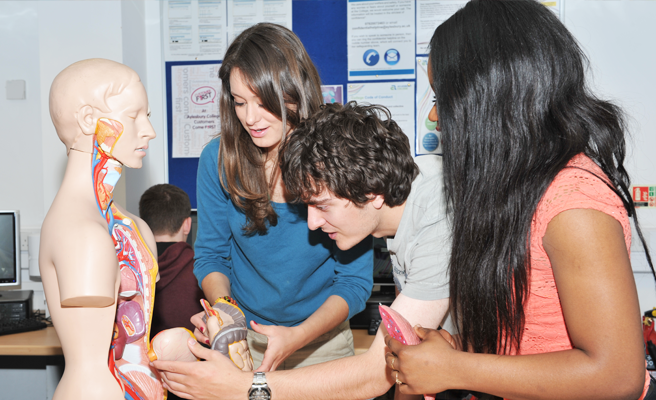This occupation is found in healthcare under the profession of dentistry. This course will prepare you for a career in Dental Nursing, and start your journey towards an occupation in a variety of dental professions, if you so wish. Dental nurses are registered professionals and work within the standards and scope of practice as defined by the General Dental Council Scope of Practice document.
Dental nurses work in a clinical environment that could be located in a NHS general dental practice, hospital, private dental practice, specialist dental practice, community dental service or military dental clinic. The clinical environment is called a dental surgery and consists of a dental chair, x-ray unit and various equipment and instruments required for dentistry. An apprentice will predominately work with a dentist, dental hygienist, dental therapist, clinical dental technician or orthodontic therapist within a surgery environment with patients attending throughout the day. You will take part in practical placements that complement theoretical study, giving you the skills, knowledge and confidence to help achieve success in this sector.
An advanced apprenticeship is the level above intermediate apprenticeships. Advanced apprentices study towards a nationally certified qualification, while they work on a full-time basis for an employer.
If you complete an advanced apprenticeship, you will receive on the job training for a specific role within a company or industry, and develop practical work skills.
-
What will I learn?
You will learn how to provide chair side support to all dental professionals and ensure high standards of cleanliness and infection control. Dental nurses prepare instruments, materials and equipment for dental procedures, mix materials, sterilise instruments, keep records, note dictation, carry out stock control and ensure patient comfort and safety throughout their visit. In their daily work, an employee in this occupation interacts with patients of all ages, other members of the dental team, other health professionals and representatives of organisations providing support services to the setting. Depending on the dental setting the dental nurse could also interact with schools, the prison service, and community dental service. Also carrying out domiciliary visits in their own homes and those in care home settings.
-
How will I be assessed?
Apprentices will be supported in the workplace by a workplace mentor and be taught in the college by a qualified and competent trainer. All students must complete 20% off the job training through a range of learning methods including college sessions. You will be assessed by written assignments,
direct observations in your workplace by an assessor, professional discussions and externally set examinations.
The EPA (End Point Assessment) is determine by the GDCs approval of the integrated qualification leading to registration if successful on competitio
-
Entry Requirements
We recommend Apprentices hold recognised qualifications in English and Mathematics. These include Functional Skills Level 2 qualifications or GCSEs at Grade C or above or grades 4 - 9.
-
Progression & Career Opportunities
On completion of this qualification you will register with the General Dental Council (GDC) and obtain a GDC number. You can the take a number of post qualification courses including Radiography, Oral Health Education, Sedation Nursing and Implant Nursing. You can also progress into another area of dentistry including Orthodontic Therapy, Dental Technician, Practice Manager and apply to university to become a qualified Dental Hygienist and therapist.
-
Cost of Study
Funding for this apprenticeship is available through the government. If your employer pays into the Apprenticeship Levy, this will be used to fund your apprenticeship. If your employer is not a levy paying employer, the government will fund the apprenticeship if you are 16 to 18 years old. If you are 19+ your employer will need to contribute 5% of the total agreed funding and the government with fund the remaining 95%.
-
Additional Information
Apprentices need to be working at least 30hrs per week (although, if you work less than this, we can extend the duration of the apprenticeship to ensure you meet the requirements of the apprenticeship standard)
The apprentice must have a signed contract of employment
The apprentice will attend college one day per week for the first 10 weeks and every three weeks thereafter
The apprentice will have a trainer who will conduct site assessments which are pre planned in advance
Once you have completed your online application you will receive an invite to an interview. Once you have received an offer you will be invited to attend an induction session at the College.














